In today’s competitive digital landscape, having a beautiful website alone is not enough to attract visitors. To bring people to your site, you need to be visible where it matters most: search engine results. Search Engine Optimization (SEO) is the practice of optimizing your website to rank higher in search results, making it easier for potential customers to find you when they search for related products or services. With effective SEO, you can increase your online visibility, attract quality leads, and drive sustainable growth. In this blog, we’ll explore the power of SEO and provide actionable tips for improving your website’s visibility.
What is SEO and Why Does it Matter?
SEO, or Search Engine Optimization, is the process of improving a website to make it more attractive to search engines like Google. By implementing SEO strategies, you can improve your website’s chances of appearing on the first page of search results, which is where most users look for information.
SEO matters because organic search traffic is highly valuable. Unlike paid advertising, where traffic stops as soon as the ads stop, SEO provides long-term results. When your website ranks high in search results, you continuously attract potential customers without having to spend money on ads. In fact, organic traffic is often more engaged, as people are actively searching for solutions related to your offerings.
Key Elements of SEO for Better Visibility
Effective SEO requires a multi-faceted approach that includes both on-page and off-page strategies. Here are the main elements of SEO that can help you improve your website’s visibility:
1. On-Page SEO
On-page SEO refers to the practices you implement directly on your website to make it more search-engine-friendly. This includes optimizing content, meta tags, headers, and more.
- Keyword Research: Identify the keywords your target audience is searching for. Use tools like Google Keyword Planner, SEMrush, or Ahrefs to find relevant keywords with high search volume and low competition.
- Content Optimization: Integrate these keywords naturally into your content, including in headings, subheadings, and body text. Avoid “keyword stuffing,” which can lead to penalties from search engines. Focus on creating high-quality, informative content that adds value to your audience.
- Meta Tags: Meta titles and descriptions are HTML elements that summarize your content for search engines. Ensure each page has a unique and relevant title tag (50-60 characters) and a meta description (150-160 characters) that includes primary keywords.
- Header Tags: Use header tags (H1, H2, H3, etc.) to structure your content. The H1 tag should include your main keyword and describe the page’s main topic, while H2 and H3 tags help break down content into readable sections.
- Image Alt Text: Search engines cannot “see” images, so use descriptive alt text that includes keywords. This helps with image search rankings and improves accessibility for users with visual impairments.
2. Off-Page SEO
Off-page SEO involves actions taken outside of your website to improve its reputation and authority. This typically focuses on building backlinks, which are links from other reputable sites to your website.
- Backlinks: Backlinks are crucial for SEO, as they signal to search engines that other websites consider your content valuable and credible. Aim to earn backlinks from high-authority websites in your industry. You can achieve this through guest blogging, partnerships, and creating valuable content that others want to reference.
- Social Media Mentions: While social media links are typically “no-follow” (meaning they don’t directly impact SEO), they can still help drive traffic to your site. Active social media profiles also increase brand visibility, which can indirectly support SEO.
- Directory Listings: Register your business in reputable online directories, such as Google My Business, Yelp, and Bing Places. This not only improves local SEO but also increases your chances of appearing in local search results.
3. Technical SEO
Technical SEO focuses on the back-end aspects of your website, ensuring that search engines can easily crawl and index your pages.
- Page Speed: A fast-loading website provides a better user experience, which is an important ranking factor. Optimize your images, use caching, and minify CSS and JavaScript files to reduce load times.
- Mobile Friendliness: With more users browsing on mobile devices, having a mobile-responsive design is essential. Google uses mobile-first indexing, which means it primarily uses the mobile version of a site for ranking. Make sure your site is optimized for mobile to improve both user experience and SEO.
- SSL Certification: An SSL certificate (HTTPS) encrypts data between the server and users, making your site more secure. Google considers HTTPS a ranking signal, so having an SSL certificate can improve your SEO.
- XML Sitemap: An XML sitemap is a file that lists all the pages on your website, helping search engines crawl and index them. Submitting your sitemap to Google Search Console can improve indexing speed and coverage.
How SEO Helps Attract Quality Leads
SEO isn’t just about increasing traffic; it’s about attracting quality leads who are more likely to convert. Here’s how SEO helps bring in the right audience:
1. Targeting Search Intent
SEO allows you to target specific search intents, such as informational, navigational, and transactional queries. By optimizing for keywords that align with users’ intent, you can attract visitors who are further along in the buying process.
For example, if you run a digital marketing agency, targeting keywords like “digital marketing agency near me” or “SEO services for small businesses” can help you reach people actively searching for those services, increasing the likelihood of conversion.
2. Local SEO for Geographic Targeting
Local SEO is a powerful tool for businesses that serve specific geographic areas. By optimizing for local keywords, creating a Google My Business profile, and getting positive reviews, you can improve your visibility in local search results. This is especially important for small businesses looking to attract nearby customers.
For instance, if you’re a café in Chicago, targeting keywords like “best café in Chicago” or “Chicago coffee shops” can help you rank higher in local searches, driving foot traffic and local sales.
3. Building Trust with High-Quality Content
Content marketing is a core part of SEO, as it helps build authority, engage users, and attract backlinks. By creating high-quality content that addresses your audience’s questions and needs, you establish your brand as a trusted resource in your industry.
Blog posts, case studies, and how-to guides are great content formats that attract organic traffic. When users find valuable information on your site, they are more likely to trust your brand, stay longer, and consider your products or services.
Tips for Improving Your SEO Strategy
Here are some actionable tips to enhance your SEO strategy and drive better results:
- Regularly Update Content: Search engines favor fresh, updated content. Regularly review and update your website’s pages and blog posts to keep them relevant and optimized.
- Use Analytics Tools: Use tools like Google Analytics and Google Search Console to monitor your site’s performance, track traffic sources, and identify areas for improvement.
- Optimize for Featured Snippets: Featured snippets are special boxes that appear at the top of some search results. Optimizing for featured snippets by answering common questions directly on your page can help you secure this valuable spot.
- Focus on User Experience: User experience metrics like bounce rate and time on site are important for SEO. Make sure your website is easy to navigate, loads quickly, and provides valuable content.
Conclusion
SEO is a powerful strategy for increasing your online visibility and attracting quality leads. By implementing on-page, off-page, and technical SEO practices, you can improve your website’s rankings, drive more organic traffic, and ultimately achieve long-term growth. While SEO requires time and effort, the results are worth it, as it provides sustainable visibility and credibility for your brand.
At Half Crescent Design Agency, we understand the importance of SEO in today’s digital world. Our team of experts can help you optimize your website to achieve higher rankings, attract quality leads, and grow your business. Contact us today to learn more about our SEO services and take the first step toward boosting your online presence.

